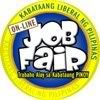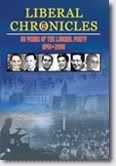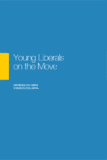
Be prepared. Have ample copies of your résumé and work samples. While the job fair organizers might be distributing copies of participants' résumés, it pays to have your own copy in hand -- just in case.
 Have realistic expectations. When you talk to a dozen recruiters in a day, expect a few to be duds. Don't let them get into your head or in your way.
Have realistic expectations. When you talk to a dozen recruiters in a day, expect a few to be duds. Don't let them get into your head or in your way.
Dress to impress: First impressions are important. While campus attire is acceptable for fairs, you will probably be most comfortable if you at least dress in "business casual." For women, a business suit or a dress or skirt of a conservative length. For men, office attire most probably long sleeves, suits or jackets. Tight, revealing or out-and-out sloppy clothing is not going to make the right kind of statement.
Do your homework. If you plan to interview with a particular newspaper, learn what you can about it. Check the online directory of the employers on the web. If you spend a little time getting some background on an organization, then you can ask very focused and specific questions. This impresses representatives because it shows a genuine interest in them.
Get your bearings. When you arrive, take a few minutes to review the map and directory for the fair. You may feel more comfortable if you quickly locate and walk by the employers in whom you're most interested. This will confirm their location and alert you to any crowds or lines of other students waiting.
 Be outgoing. Extend your network by talking to recruiters and other job-seekers whenever you have the chance. You can do a lot of good work at meals, breaks and workshops.
Be outgoing. Extend your network by talking to recruiters and other job-seekers whenever you have the chance. You can do a lot of good work at meals, breaks and workshops.
Prioritize the employers you're most interested in. If your schedule allows, you may find it easiest to start with the employers in which you're the least interested. This will allow you to hone your approach and to be most confident when you approach the employers you're especially excited about. Be sure to balance this tip with the reality that you may have little time and that many other job seekers may be interested in the same employers. Assume that you will need to wait to speak with some employers.
Introduce yourself. Extend your hand, say "hello" and state your name. Welcome the representative to
Wear your name tag wherever you're likely to encounter others from the job fair. You may feel conspicuous wearing a name tag; that's good. You want to be conspicuous.
Take notes when you inquire about next steps and the possibility of talking with additional managers. The representative at the fair may not be able to answer all of your questions or know specifics about your job interests. Write down the names, telephone numbers, etc. of other staff in the organization whom you can contact later.
Follow up. The people who get the most out of a job fair are the ones who follow up with a letter or phone call. Job-seekers who think that the work stops when the job fair stops are the ones who have the most trouble getting their careers started.
when the job fair stops are the ones who have the most trouble getting their careers started.
Ask the representative for his/her card, and then promptly send a thank-you note. Having the business card of the representative you have just spoken with serves three purposes. First, you have a direct contact with the organization, including the proper spelling of the representative's name, direct telephone line, etc. Second, a brief thank-you note acknowledges the help they gave you. Third, sending thank-you notes is a good professional habit.
Respect employers' materials/sample items. Some employers bring large quantities of print materials or "give aways" clearly intended for students to take. Other employers bring a few copies of print materials, sample products, etc. as displays at their tables. Always check with employers before taking materials from their tables and don't take materials still packed in boxes. Some employers come to multiple days of fairs and plan to have enough materials for all days.
Sources:




















